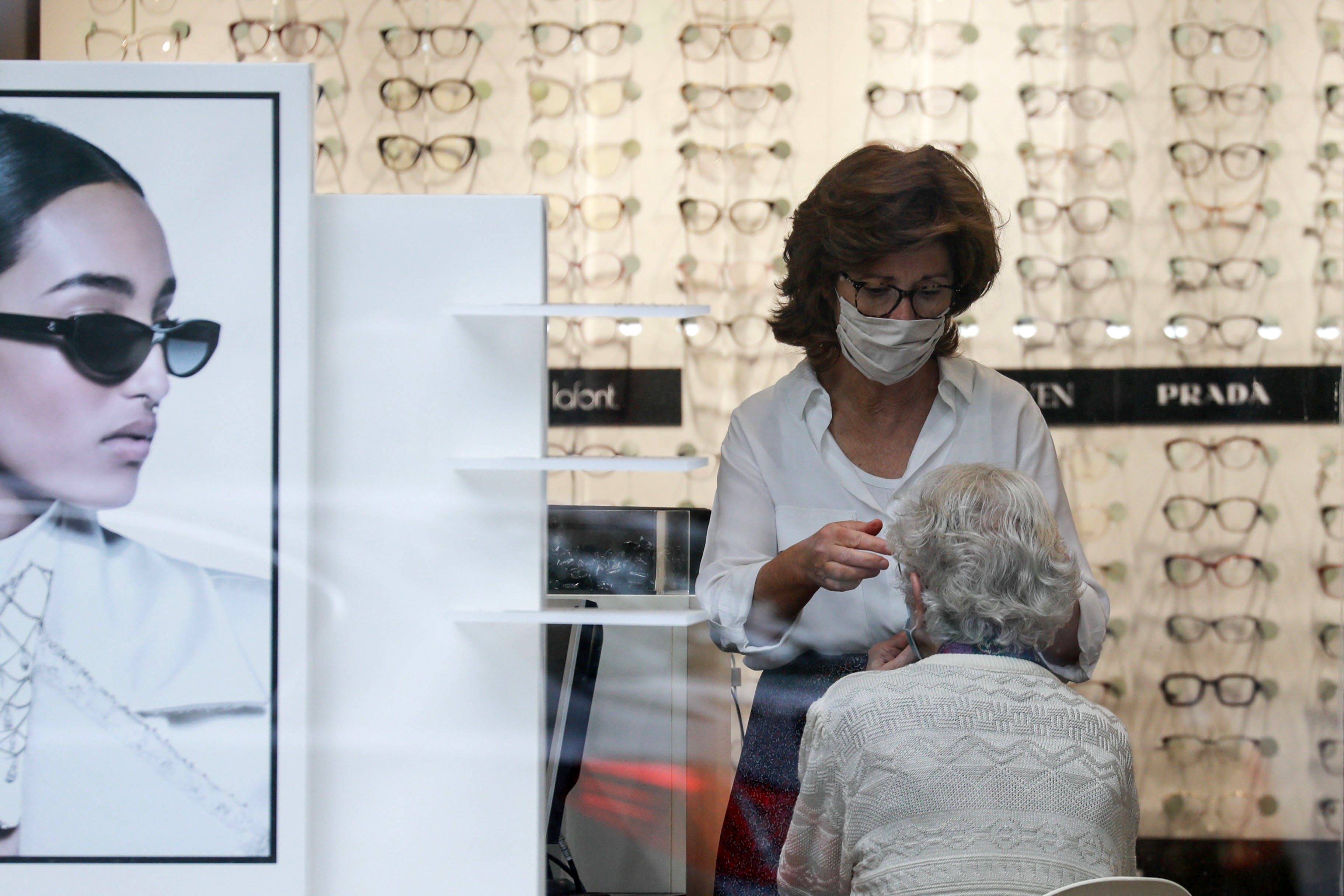Nearly one third of Britons notice vision has worsened since pandemic
Many who noticed their eyesight deteriorate did not seek help due to fear of catching or spreading coronavirus

Nearly one third of adults in Britain noticed their vision get worse during the pandemic, new research says.
A study from The College of Optometrists polled 2,000 adults about their vision after the first lockdown in June 2020, and again as the lockdown began to lift in April 2021.
It found that there was a marked increase in those worried about their eyesight, with 31 per cent of respondents noticing a negative change in their vision after the lockdown in 2021. Only 22 per cent of respondents noticed a negative change in their eyesight after the first lockdown in 2020.
Almost half (44 per cent) of those polled believed that their vision got worse because of increased screen time, but few sought corrective help.
Many who noticed a change in their vision did not seek help as they either did not believe the problem was serious, or because they felt that they would be at a higher risk for contracting Covid-19 if they went to see an optometrist.
Daniel Hardiman, Clinical Adviser at the College of Optometrists, FCOptom said: “It is very important that if you feel your vision has deteriorated or if you are experiencing any problems with your eyes, such as them becoming red or painful, that you should contact your local optometrist.
“We know many people are concerned about the safety of visiting an optometrist, but please be assured that optometrists are open and are safe to visit. Your practitioner will ensure all the appropriate safety measures are in place.
“The research also showed us that many people believe that spending more time in front of screens has worsened their vision. You might have increased your exposure to screens with working from home, video calls and more television, and it can be tiring for your eyes. The good news is that this is unlikely to cause any long-lasting harm to your vision.”
This study echoed findings from earlier this year. In January, eye health charity Fight for Sight found that out of 2,000 people surveyed, 38 per cent believed their eyesight had worsened; it also found that 20 per cent were less likely to get an eye test when compared with before the pandemic, due to fear of catching or spreading the virus.
These findings are unsurprising, as nearly two million people missed their routine eye tests during the pandemic.
The College of Optometrists suggests five strategies to avoid unnecessary eyestrain while working from home. Beyond blinking regularly, and using lubricating eye drops, they recommended making text size bigger on screens — which makes it more comfortable to read — and placing screens below eye-level, between 40 and 70cm away from one’s face.
The College also recommend the 20-20-20 rule — every 20 minutes, give your eyes a rest by looking at something that’s 20 feet away, for at least 20 seconds.
Health and safety legislation in the UK states that employers are required to pay for eye tests for their employees if they have to use a screen for work for more than one hour per day.
Join our commenting forum
Join thought-provoking conversations, follow other Independent readers and see their replies
Comments
Bookmark popover
Removed from bookmarks